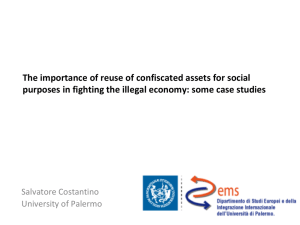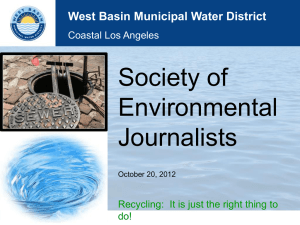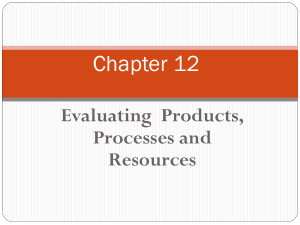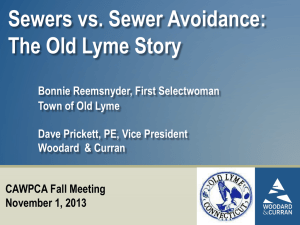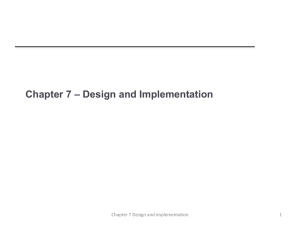open
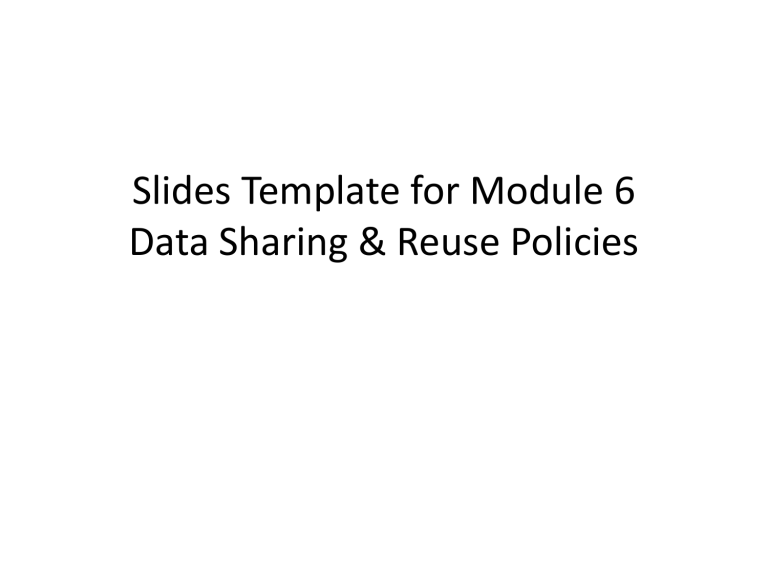
Slides Template for Module 6
Data Sharing & Reuse Policies
Learner Objectives
• Explain the benefits of sharing data
• Identify issues/obstacles related to reuse and sharing of data
• Understand open access/open science/open data
• Understand data reuse/sharing/access policies from funding agencies, institutions and publishers
• Recognize the need to use standard data formats, consistent file naming conventions, etc.
• Contrast sharing data within and outside of a research team
• Understand the need for data attribution and citation
Module 6: Data Sharing & Reuse Policies
History of Sharing Data
What’s Old
• Sharing one on one
• Sharing as part of a small lab team
• Sharing between faculty and students
• Sharing a few compiled results (tables, diagrams) within the context of a publication
What’s New
• Sharing with large numbers of researchers outside one’s research team
• Sharing data as a distinct entity not as a supplement to paper
• Broad dissemination via the internet
• Sharing with the public
Module 6: Data Sharing & Reuse Policies
Why Share Data?
• Data as a public investment
• Required by publishers
• Required by government funding agencies
• Informs new research
• Maximizes transparency, accountability and scrutiny of research findings
Module 6: Data Sharing & Reuse Policies
Why Share Data?
• Increases the impact and visibility of research
• Provides credit to the researcher as a research output in its own right
• Critical to the success of collaborative research
• Reduces duplication of effort
• Provides great resources for education and training
Module 6: Data Sharing & Reuse Policies
Who Benefits?
• Researcher and research team
• Scientific communities (including citizen science)
• Students
• Public
• Funding agencies
Module 6: Data Sharing & Reuse Policies
Reuse and Sharing Issues
Faculty/Researchers Reluctant to Share Data
• Don’t understand the need or benefits to sharing data
• Poor quality data sets due to experimental design, mismanagement
• Don’t want to lose control of data
• Fear criticism
• Legal ramifications
Module 6: Data Sharing & Reuse Policies
Reuse and Sharing Issues
Students’ lack of awareness of value of data
• Don’t understand that others might want their data or data could be useful in future project
• Lack of data management training
• Uneasy about sharing potentially confidential data
• In group projects lack of clarity over who is responsible for data
Module 6: Data Sharing & Reuse Policies
Potential Legal & Ethical
Restrictions on Reuse
• Licensing
• Copyright: Representation of data (graphs, tables, models, etc.)
• Institutional Data Policies
• IRB (Institutional Review Board)
• Funding Agency Policies (public/private)
Module 6: Data Sharing & Reuse Policies
Publisher Restrictions
Module 6: Data Sharing & Reuse Policies
Data Sharing Policies
National Science Foundation
“[NSF] expects PIs to share with other researchers, at no more than incremental cost and within a reasonable time, the data, samples, physical collections and other supporting materials created or gathered in the course of the work.”
Module 6: Data Sharing & Reuse Policies
Data Sharing Policies
National Institutes of Health
The data produced in the course of the funded research “should be made as widely and freely available as possible while safeguarding the privacy of participants, and protecting confidential and proprietary data.”
Module 6: Data Sharing & Reuse Policies
Open Science
• Transparency in experimental methodology, observation, and collection of data.
• Public availability and reusability of scientific data.
• Public accessibility and transparency of scientific communication.
• Using web-based tools to facilitate scientific collaboration.
Module 6: Data Sharing & Reuse Policies
Open Data
“A piece of data or content is open if anyone is free to use, reuse, and redistribute it– subject only to the requirement to attribute and/or share-alike”
(Open Knowledge Foundation).
Panton Principles
1. When publishing your data, make an explicit and robust statement of your wishes.
2. Use a recognized waiver or license that is appropriate for data.
3. Non-commercial and other restrictive clauses should not be used.
4. Explicit dedication of data underlying science into the public domain (CCZero) (Panton Principles 2010;
SPARC)
Sharing Data Within a Research
Group
• Location of data
• Folder structuring
• File naming standards
• Versioning
• Formats
• Responsibility
• Communication
• Documentation and Back up
Module 6: Data Sharing & Reuse Policies
Sharing Outside the Research
Group
• Consult your university data policy/intellectual property policy
• Consult funders’ policies
• Consult your PI
• Consult your IRB office
Module 6: Data Sharing & Reuse Policies
Why is it Important to Cite Data?
• Provides appropriate credit (avoids plagiarism)
• Helps data producers know how their data is being utilized
• Enables other researchers to access data for their own use or to replicate research findings
• Assists in measuring the impact of a data set by tracking references to it in the scientific literature or in online conversations (“altmetrics”)
Module 5: Legal & Ethical Considerations
How to Cite Data?
• Author/Creator(s): the creators of the data
• Title: the title of the dataset
• Version: the exact version or edition of the data set
• Publication Date: the date when the data set was published or released
• Publisher/Archive: the data center or repository that is archiving and distributing the data
• Identifier/Locator: URL or other locator for the data (e.g. a persistent URL such as a DOI or a handle)
Module 5: Legal & Ethical Considerations
Citing Repository Data
Module 5: Legal & Ethical Considerations


